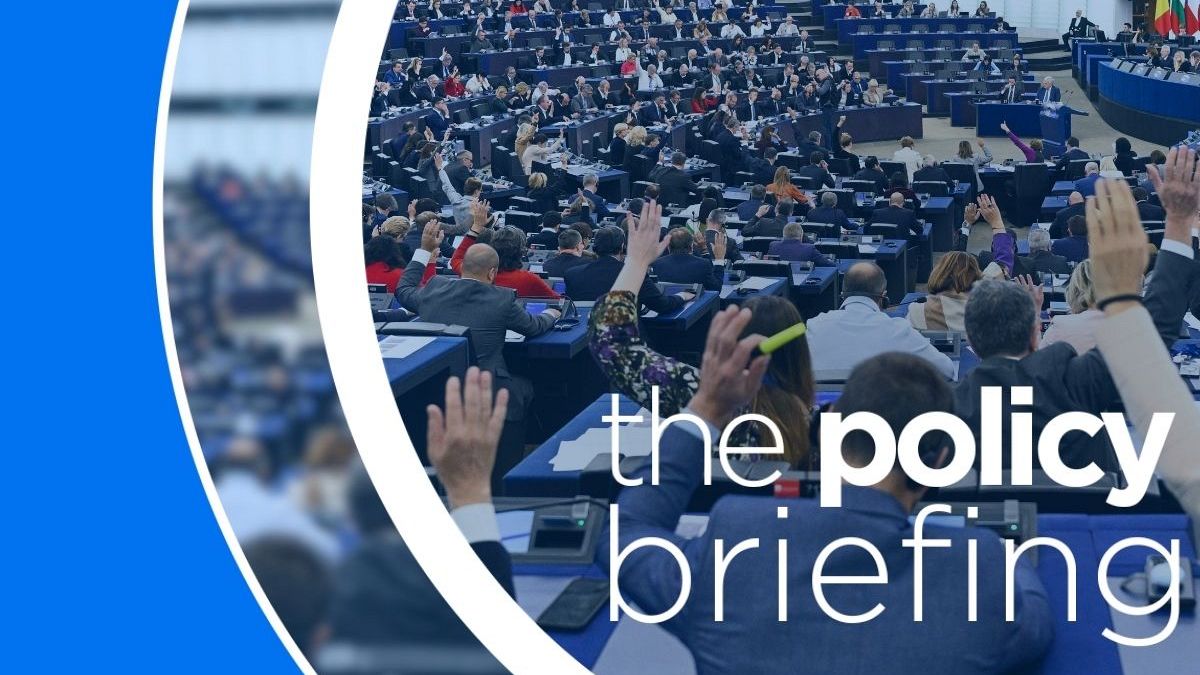This week’s key events presented by Euronews’ EU news editor in chief Jeremy Fleming-Jones
Key diary dates
- Monday 4- Friday 8 November: Hearings of commissioners designate in the European Parliament.
- Thursday 7 November: European Political Community summit in Biudapest.
- Friday 8 November: Informal summit of EU leaders in Budapest.
In spotlight
Hearings of EU commissioners-designate starting in the European Parliament today and continuing through to next week would need to be explosive to compete for attention with the US election.
Even if they were not overshadowed by the landmark poll, expectations for political fireworks seem low, with candidates earmarked as endangered likely to survive the grilling process on the basis of political calculus.
The designees must be approved by at least half of the MEPs in the relevant committees, and if this majority isn’t reached, lawmakers can request additional information. If the candidate is rejected, the process starts over from scratch.
Several candidates will likely come under particular pressure in the hearings. The Socialists and Democrats (S&D) and liberals in Renew Europe have indicated they will target Italy’s Raffaele Fitto and Hungary’s Olivér Várhelyi in the hearings, while the European People’s Party (EPP) seem likely to question Maltese nominee Glenn Micallef’s (S&D) and Belgium’s Hadja Lahbib’s (Renew) experience for their appointments.
Candidates will only be voted down if the broad political consensus that von der Leyen brokered in seeking re-election in June is ruptured, however, and that would likely have a ripple effect, potentially driving the EPP to rely further on the right wing MEPs, and fracturing von der Leyen’s broad political coalition.
Another concern among lawmakers is that if Várhelyi is rejected, Viktor Orbán might simply not propose to send anyone at all, putting the entire process on ice. By the time of Várhelyi’s hearing in the Parliament on Wednesday evening, US electors might have returned Orbán’s political ally Donald Trump to the White House, which would likely embolden the Hungarian premier further in his relations with the Commission.
The hearings will likely yield some significant concessions however. Candidates replying to a barrage of questioning from MEPs on specific policy directions or pledges might find they are cornered into offering undertakings against which they might be held up to proof during their mandate.
The Parliament will also be in a stronger position to hold the commissioners to account in future.
The hearings are the first conducted under new parliamentary rules of procedure adopted in April designed to reinforce the chamber’s scrutiny of the executive. Those rules see the introduction of a new weapon in the form of special scrutiny hearings, through which MEPs they can question Commissioners or any other relevant individuals regarding their political actions on an issue of major political importance.
Policy newsmakers
Harris or Trump? MEP surrogates
Europe awaits the outcome and impact of next week’s US election, and Euronews spoke to two MEPs advocating for the competiting candidates for the White House, asking why they think Donald Trump’s or Kamala Harris’ election would be a better choice for Europe.
The European Parliament’s leftist political groups – Socialists and democrats, Greens/EFA, The Left – plus Renew Europe clearly endorse Democratic candidate Kamala Harris. But there are also supporters of Donald Trump in Brussels, such as the members of the right wing Patriots for Europe group.
For Trump, Patriots MEP António Tânger Corrêa spoke to us from his native Portugal; while Harris advocate Daniel Freund (Greens/EFA, Germany) spoke to us from the US, where he is following the elections.

